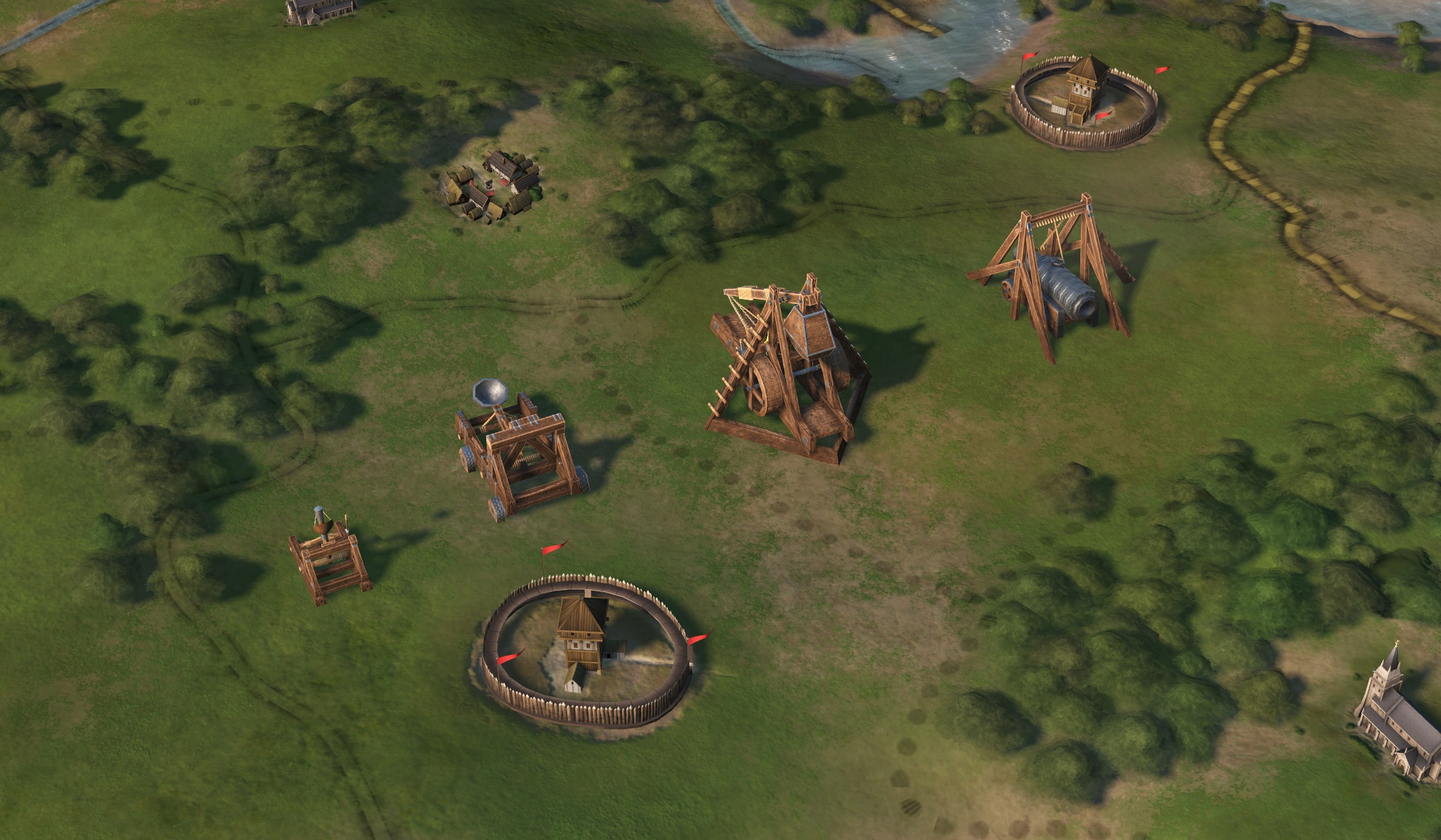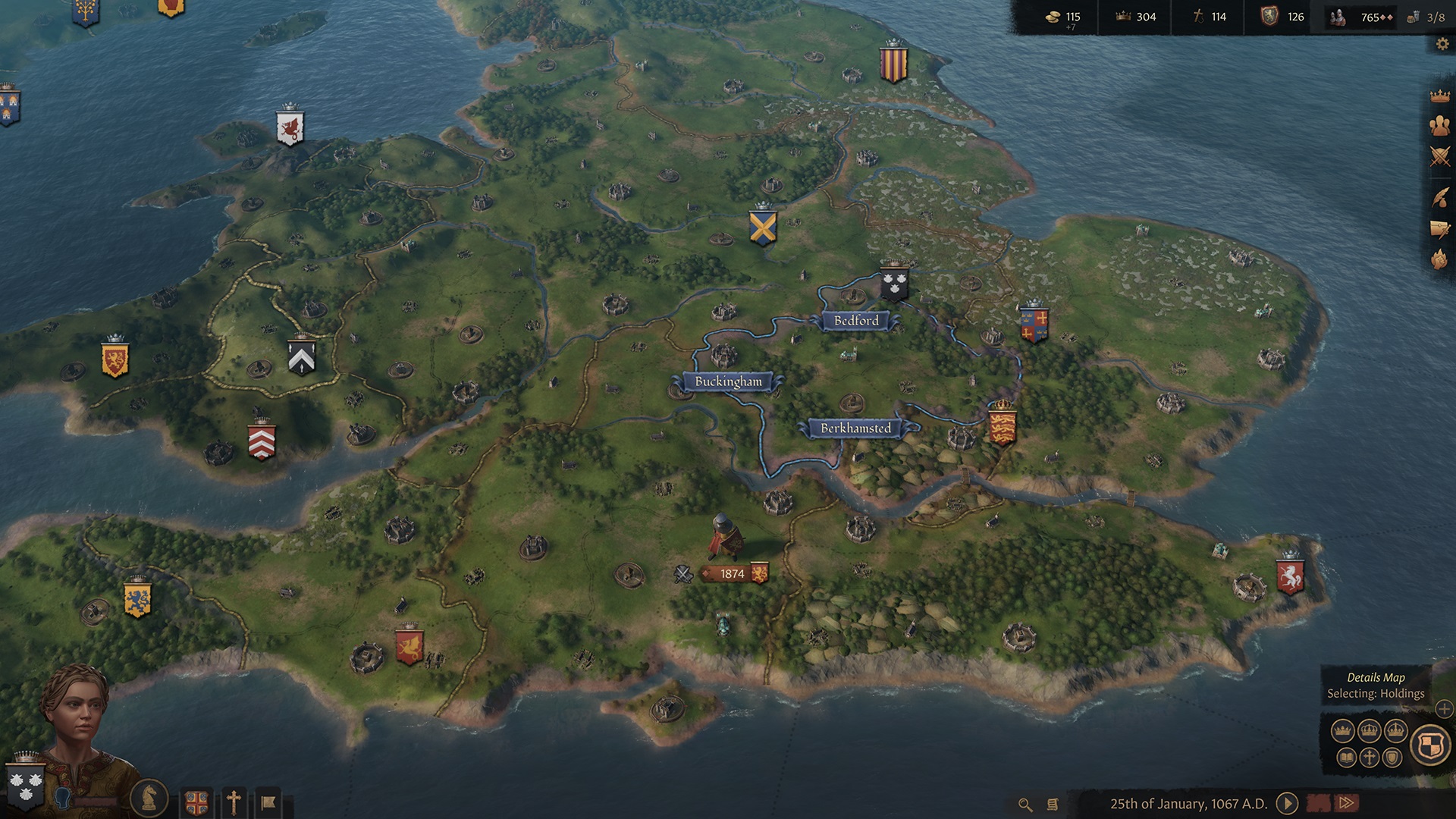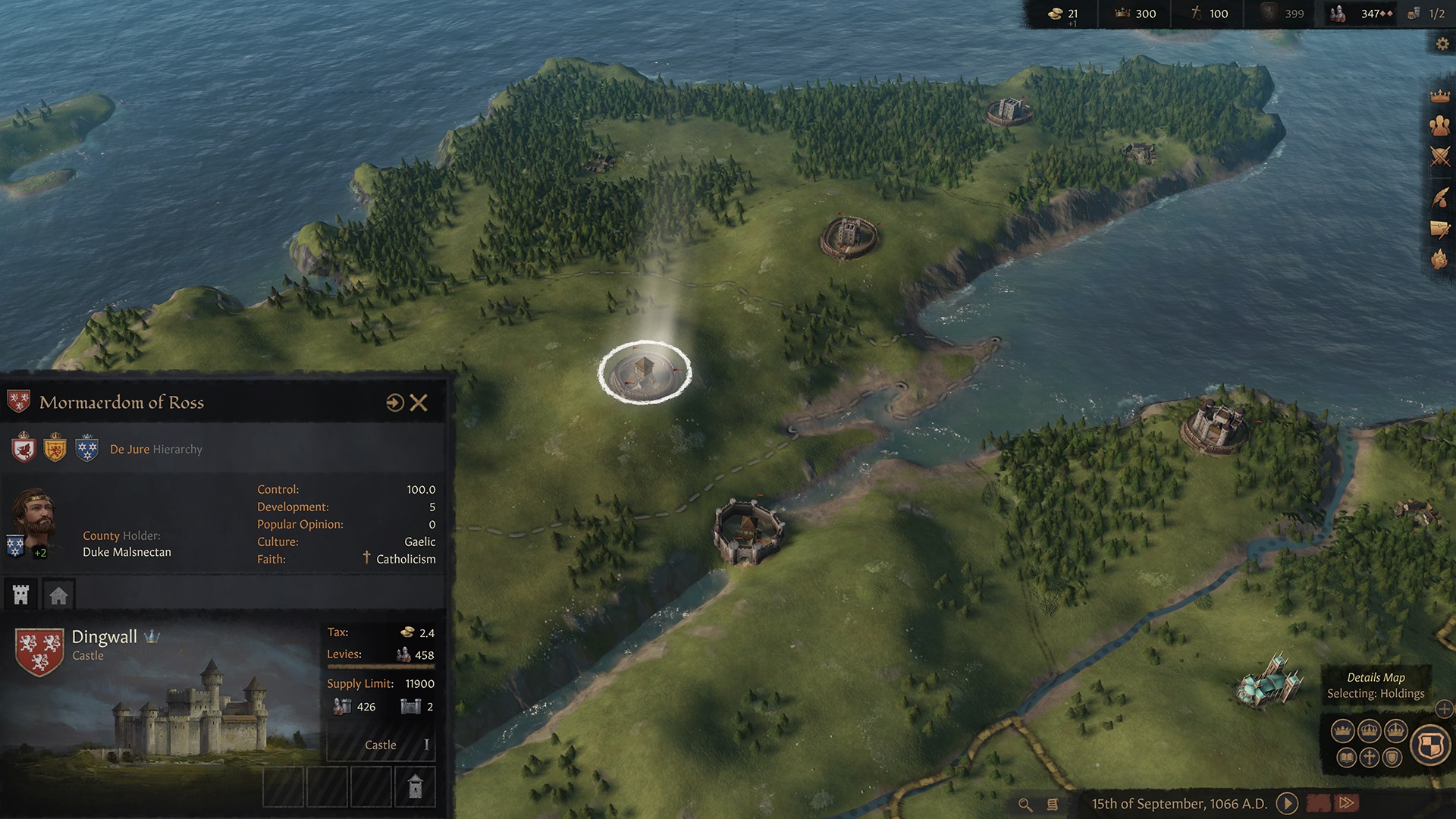Crusader Kings 3 developer diary reveals how war is waged
Mostly by unfortunate peasants.

The latest Crusader Kings 3 developer diary tackles war, one of the subjects Paradox largely kept to itself when the sequel was announced in October. It goes into more detail about levies and professional troops, some of which we learned at PDXCon, along with new information about the battles themselves.
Armies in Crusader Kings 3 are mostly made up of conscripted peasant levies who aren't very good at fighting but can protect your more valuable troops—your men-at-arms. These units have roles like light cavalry or heavy infantry, but there are also units unique to specific cultures or regions.
Your professional troops all have four different stats that determine how much damage they do, how much they can take, how good they are at cutting down fleeing enemies and how good they are at escaping with their lives if things go wrong. As well as different stats, you'll also find units who specialise in fighting in specific terrain. Along with recruiting soldiers, you'll be able to get your hands on siege weapons. They'll speed up sieges, and you'll start with a weak catapult but will be able to eventually field fancier war machines, including trebuchets.

New to Crusader Kings 3 are knights. These are both units and characters who are members of your court. Characters with a high combat skill, Prowess, can become knights and lend their strength to your armies, though you're limited to only a few of them at first. Armies have a single commander, too, who can improve the troops under their command and, depending on their traits, can give armies terrain bonuses or make supplies last longer.
How many troops you can field is determined by the battlefield itself, as well as the size of the defender. Terrain also plays a role, so you won't be able to throw as many men into the fight if you're duking it out in the middle of some mountains, while big armies will benefit from fighting on flat, open ground. Terrain, as well as buildings, traits and the skill of the commander contribute to the Advantage modifier, and the side with highest number gets a combat bonus.
When you're at war and trying to bump up your War Score, you won't have to lay siege to every province. Baronies, which were once only located in the menu, are now their own provinces, but you'll only have to worry about fortified holdings, like castles and capital cities. They've all got a specific level of fortification that adds more to the maximum duration of the siege. With siege weapons and siege events, however, fortifications can fall faster.

There are some changes in how armies move around, too. Instead of being able to just saunter across rivers, CK2-style, armies will need to find specific areas to cross, where they can also be ambushed and lose Advantage. The map, as well as being much larger, will have more impassable terrain and bottlenecks, hopefully adding some more tactical nuance to fights.
Keep up to date with the most important stories and the best deals, as picked by the PC Gamer team.
Supply limits work a bit differently now, and popping into another province that puts you above the supply limit won't instantly cost you some troops. Armies now carry stuff around with them for just such an occasion, thankfully, and that has to be drained before they start taking attrition and dying. That won't help much if you dive deep into enemy territory far from your borders, however, where you'll take a very large attrition hit.
It's a lot of new information to dig through, and you can see how it's all presented in the UI over on the dev diary. While Paradox has been pushing the roleplaying elements a lot, it seems like the strategic side is still getting plenty of attention, not that I need an excuse to plunge my kingdom into war.
Crusader Kings 3 is due out next year.

Fraser is the UK online editor and has actually met The Internet in person. With over a decade of experience, he's been around the block a few times, serving as a freelancer, news editor and prolific reviewer. Strategy games have been a 30-year-long obsession, from tiny RTSs to sprawling political sims, and he never turns down the chance to rave about Total War or Crusader Kings. He's also been known to set up shop in the latest MMO and likes to wind down with an endlessly deep, systemic RPG. These days, when he's not editing, he can usually be found writing features that are 1,000 words too long or talking about his dog.

